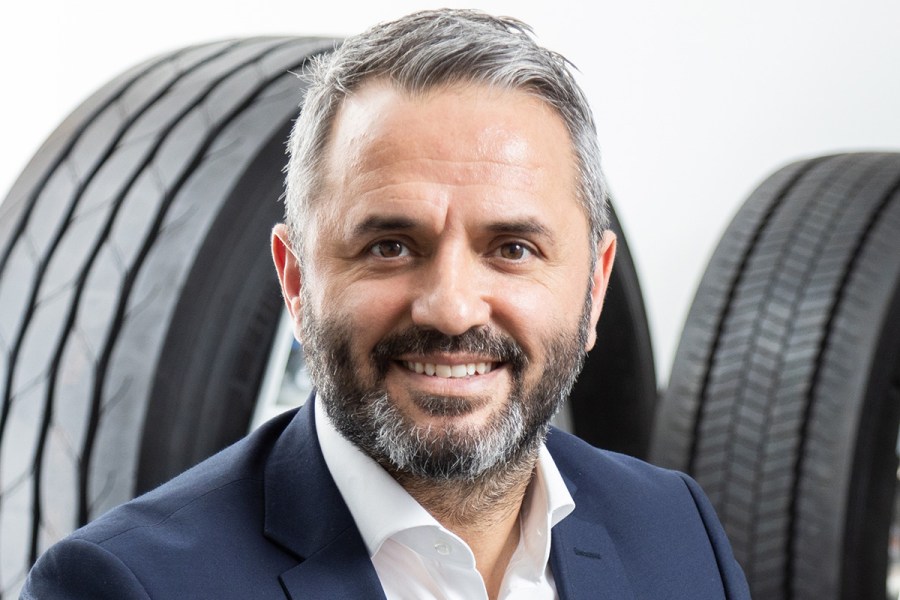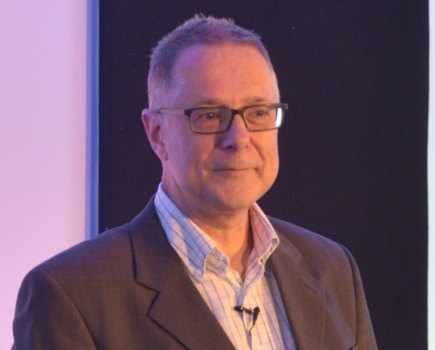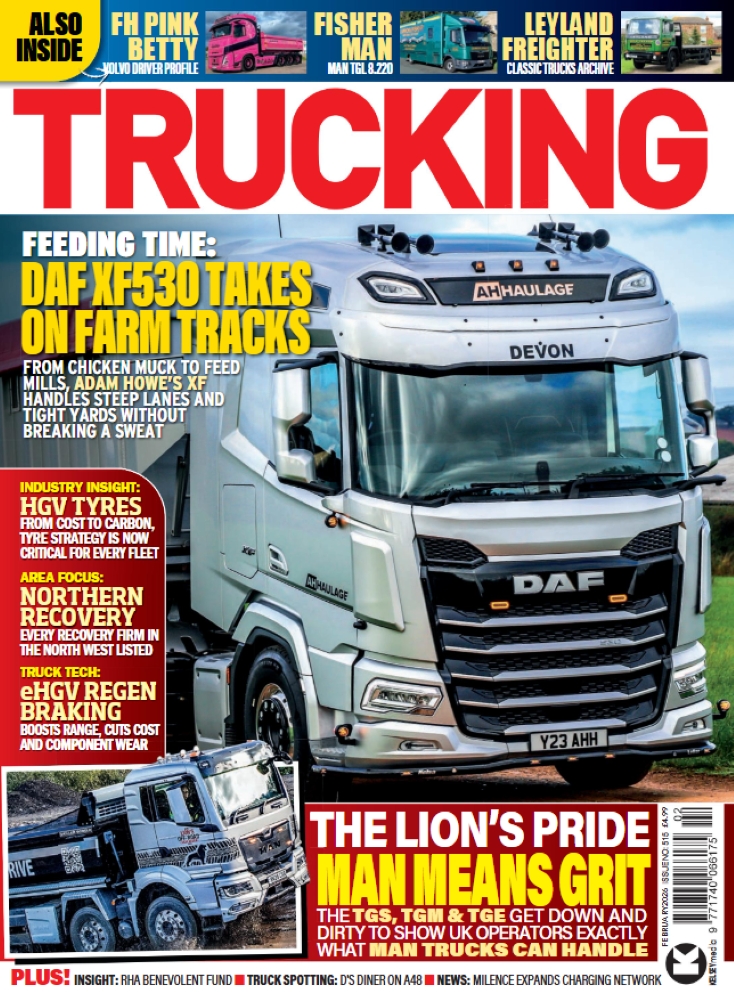Prometeon Tyre Group was established in 2017 as a spin-off from Pirelli Tyre’s industrial division. Trucking interviewed the UK MD, Ali Yilmaz, to gain insight into the brand and its future plans for serving the haulage industry in the UK.
What was the thinking behind creating Prometeon as a separate entity from Pirelli?
It was not a separation, just a different identity to Pirelli.
Prometeon is now the only manufacturer focusing entirely on the truck, bus, agro, and OTR (off-the-road) sectors. We have our own factories and R&D centres, two in Brazil, one in Egypt, and one in Turkey. But these retain the same DNA with over 100 years of valuable experience and expertise.
With the Serie 02 – our latest and most innovative tyre range -, the sidewall now says “Engineered by Prometeon,” reinforcing that Prometeon has its own technology in all of its products. We are more agile, and we can offer our customers more tailored solutions.
What proportion of your business is the UK HGV market?
Up until 2023, truck and bus sales comprised almost 100% of sales. We now have a dedicated sales manager on Agro, so we are expecting to see the benefits of this from 2024 onwards. And with OTR, we are now finalising plans for 2025 onwards.
But right now, nearly all of our business is coming from the HGV sector, with a small portion from the bus market.
Is the UK different to other markets?
I started in the industry in 2010. During that time, I have had a chance to visit other countries that are important to our industry. The answer is definitely yes. There are some significant differences. The first is PPK (price per km).
To grow in the UK market, you need to have a strong offering on PPK because a significant majority of our customers would like to receive a service in the form of PPK. The PPK method not only helps our customers receive all the services under the same umbrella but is also critical for budgeting. This is really important.
The second is sustainability. Everyone is talking about this. I moved to the UK in 2020, but I can already see how the seasons and weather are changing because of the climate. Our customers ask, “What is your investment in sustainability, especially carbon footprint?” Customers will decide what the effect on the world will be if they buy from your company versus brand XYZ.
After the launch of the Serie 02range, most of our patterns in many sizes of tyre are best-in-class, which offers our customers a huge benefit in terms of carbon footprint.
I know many distributors and retailers are demanding sustainability from their entire supply chain, and that includes the tyres and fuels that trucks use. Sustainability now affects everything. 18-20 years ago, we couldn’t find anyone focusing on this topic, but I’m really proud of what’s happening in our company.
Have you seen any noticeable changes in the past 7 years?
When you look at the overall market, there are two important years. The first is 2020, and then 2023. There was a significant drop in 2020 because of COVID, followed by another significant drop in 2023. The main reason for that second drop was the huge post-covid demand from 2022 prompting price increases from all of our business partners who tried to buy more tyres because of the expected increase in demand. The 2023 surge didn’t happen as predicted, and the market actually dropped.
But we should look at the general trends for transport. The car business is changing very fast. Just five years ago, many popular sizes were different from what we have today. In the truck segment, the sizes are relatively the same. But the main changes have to do with the switch from diesel vehicles to electric, which we definitely also see in buses.
It has developed very quickly and there has been a significant growth. Mainly because the public transport sectors have benefited from more government funding to switch to alternative fuels. So, there are a lot more operators running electric vehicles.
Has the market for new tyres and retread tyres changed or remained stable?
Operators certainly mention retreads more. Some of our customers are very price-sensitive and they use retread tyres in their fleets.
For 2024, I’m expecting a very stable market, but at the same time, it looks like there could be some price fluctuations. There will likely be a decrease in the retread market, but for our strategy and plans for 2024, I’m sure that nothing much will change for the main manufacturers, and our growth will keep continuing this year.
Do you have any plans or new lines?
As I mentioned, we have four factories: two in Brazil, and one in Turkey and Egypt. Turkey and Egypt service the whole of Europe. When you compare our production capacity with around five years ago, our production capacity is increasing year on year.
We are planning to grow in two important areas. First, the OEM segment is important to us as a company. Then, there is our new 02 product range, in many sizes. We are best in class, which allows us to offer the best sustainable solution to customers.
We had one customer visit in December on the OEM segment, and in January, they started placing orders. This is good news. As for the second priority for 2024, of course, we will continue to focus on our business by signing new OEM contracts with customers.
We also launched our U02 Urban-e range. The ‘e’ stands for electric vehicle. When you choose an electric vehicle, you expect a different experience from old-school vehicles. It is a heavier vehicle compared to the previous one, so your tyres need to be different too.
I have already seen a couple of performance results from Europe. In January we announced that we have gained an extra 2% market share versus last year, this is really good news, this kind of increase is not easy, so I’m really proud of what my team is doing.






